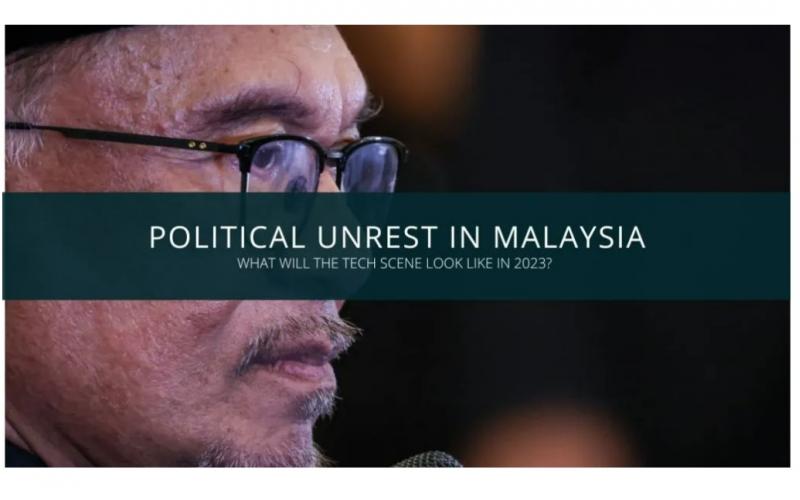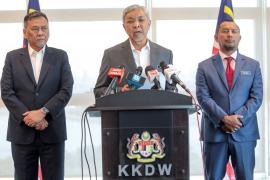
Recent political unrest in Malaysia has enormously impacted the country’s economic growth. Not only will it continue to have implications for the people and commerce, but it will also affect investors’ confidence in the Malaysian tech scene.
On August 16 2021, the eighth prime minister of Malaysia, Muhyiddin Yassin, stepped down from his position after losing most of his parliamentary votes after only 17 months in office. A few days later, Malaysia’s King Al-Sultan Abdullah appointed Ismail Sabri Yaakob as Malaysia’s ninth prime minister and the third prime minister within three years.
With the ongoing conflict, the Malaysia tech trends in 2023 are not likely to boost or protect the startup scene of this potential ASEAN powerhouse.
The political impact on the Malaysia tech scene
Instability has plagued Malaysia’s attempts to develop its economy over the past four years. Since the 2018 election marked the first change in government in sixty years, the private sector has shown reluctance to invest in line with the country’s potential to become a tech hub due to numerous policy reversals. One such decision is whether to proceed with a high-speed rail (HSR) line project that connects Kuala Lumpur and Singapore, reducing the planned increased connectivity between these two crucial Southeast Asian economies.
Another policy turnaround disrupting the economy concerns dismantling foreign labour cartels that have contributed to severe workforce shortages. Both foreign and domestic investors have slowed their commitments after the unexpected defeat of the UMNO-led Barisan Nasional (BN) by Pakatan Harapan (PH). The brinkmanship of two of the country’s four largest telecommunications companies over the crucial rollout of the 5G network is another victim of this political instability.
Maxis and U Mobile’s decision last week to reject a stake in the state-controlled 5G provider, Digital Nasional Berhad (DNB), has further delayed the rollout of the Ismail Sabri Yaakob administration’s flagship infrastructure project. On August 30 2022, Maxis informed DNB of its withdrawal five minutes before the deadline, while U Mobile withdrew the following day. Maxis cited issues with the “transparency” of the equity deal. The companies have been the most enthusiastic about developing their 5G infrastructure; however, a potential political shift following the elections will likely influence their thinking.
Political uncertainties are seen as a ‘short-term risk’
Despite the political turmoil in Malaysia, Kejora Ventures and Sun SEA Capital venture partner Raymond Ho opined that it would have a minimal effect on investors’ confidence in Malaysian tech startups due to the accelerated digitalisation that has been ongoing since the pandemic.
Venture capitalists (VCs) typically take a long-term perspective instead of a short-term one when investing in tech startups. The long-term concerns should focus on monitoring which market segments are heavily affected by COVID-19 and shifting consumer behaviour.
It is anticipated that the new government will continue to support the country’s technology sector. However, this does not imply that everything will be pleasant and managed correctly because the prolonged political uncertainty may slow economic recovery.
Expect a weaker tech scene for 2023
Malaysia remains a crucial player in the global supply chain, as 7% of international semiconductor trade passes through the country, and it holds 13% of the world’s chip testing and packaging market share. The electrical and electronic industry continues to be the most significant export contributor, with a total of USD 11.4 billion in semiconductor investments announced over the past 12 months and aiming to create 11,000 jobs.
Hong Leong Investment Bank Bhd (HLIB) reported that the Malaysia Semiconductor Industry Association (MSIA) anticipated a decline next year, primarily due to the weakness in consumer-centric end markets such as PCs and smartphones. However, the automotive segment remains resilient with a solid book-to-bill ratio.
Global investment is expected to be very robust, with a total value of USD 1.2 trillion planned over the next 10 to 20 years. Despite the recent reduction in capital expenditure plans by major players, MSIA believes this will not significantly impact the industry as equipment lead times remain lengthy. MSIA is working with the government to improve non-monetary incentives, such as automation, talent, supply chain, R&D, and connectivity, to attract foreign direct investment in this industry. The Malaysian tech sector still faces economic headwinds like inflation, global recession risk, Taiwan-US-China tensions, demand corrections in consumer products, supply disruptions, and a shortage of workers and talent.
As political unrest in Malaysia continues, the people of Malaya can only hope for a better government in the future. Despite the stunted startup scene, the government’s efforts to bring the technology sector into their budget are considered an achievement. With funds and support from the government, more tech startups are likely to take the opportunity to explore the market. Meanwhile, the Malaysia tech trends 2023 will most likely remain relevant as people adapt to the age of the digital economy despite the political turmoil.
source: https://techcollectivesea.com/2023/01/12/political-malaysia-tech-2023/






